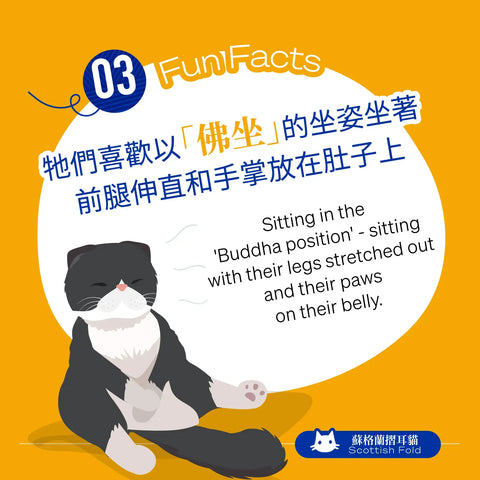CAT BREED #6– Scottish Fold
Scottish Folds, with their unique folded ears and round, expressive faces, are cherished for their sweet, gentle disposition. These charming cats are known for their quiet voices and affectionate interactions with their human companions.
Five Fun Facts
 |
 |
 |
 |
 |
 |
General Care
Scottish Folds require regular grooming, more so if they are the long-haired variety. Their folded ears also need to be checked and cleaned regularly to prevent infections.
They enjoy both play and relaxation, making them suitable for various types of households. They appreciate interactive play sessions and comfortable spots for lounging, but we want to avoid excessive exercise and jumping which may affect their sensitive joints.
Training and Socialisation
Scottish Folds are intelligent and can be trained with ease using positive reinforcement. They enjoy interaction and can learn tricks and commands.
Early socialization is important for Scottish Folds to become well-rounded and confident cats, especially exposure to different people and calm environments.
Health Considerations
Scottish Folds are prone to certain health issues, especially related to their unique ears and cartilage development. As mentioned above, Scottish Folds should never be bred together, but instead one of the pair should be a British Shorthair. It should also be mentioned that some countries have banned breeding Scottish Folds over welfare concerns due to their cartilage gene issues. Scottish Folds also have increased rates of kidney and heart issues. We believe all Scottish Fold cats should be on a cartilage supplement such as glucosamine or green-lipped mussel extract to help support their joints.
The Bottom Line
Scottish Folds are a unique and loving breed, but some welfare concerns have arisen due to their breeding and genetics. They are very sweet cats and make wonderful pets, but we would recommend owners do not breed them, as we look to avoid genetics that can cause painful joint problems and other issues in later life.

